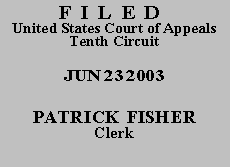

| DOREEN JANICE CURRY,
v.
ROBERT HALF INTERNATIONAL,
INC. d/b/a ACCOUNTEMPS
SPECIALIZED STAFFING |
|
I. Background
Plaintiff Doreen Janice Curry, proceeding pro se, filed an action against her former employer, Robert Half International, Inc., d/b/a Accountemps Specialized Staffing ("Accountemps"), alleging breach of contract, racial discrimination, retaliatory discrimination, wrongful termination, and failure to provide medical leave. The district court granted defendant's motion for summary judgment and denied plaintiff's motion for summary judgment.(1) Specifically, the district court held that: (1) plaintiff failed to establish the existence of a contract; (2) plaintiff did not present evidence that defendant engaged in any conduct indicating racial animus or racial hostility toward plaintiff; (3) plaintiff did not present evidence indicating that the allegedly actionable retaliatory conduct was attributable to defendant; and (4) plaintiff's claim for medical leave was not cognizable under the Family Medical Leave Act or any other state or federal law. Plaintiff appeals these decisions.
Plaintiff also appeals various rulings of the district court, alleging the district court erred by: (1) denying plaintiff's request for court-appointed counsel; and (2) denying plaintiff's request for the court reporter's transcript at government expense. Plaintiff also alleges that the magistrate judge erred by denying plaintiff's motion to strike her deposition testimony. Lastly, plaintiff claims that defendant engaged in witness tampering and obstruction of justice.(2) We exercise jurisdiction pursuant to 28 U.S.C. § 1291 and AFFIRM.
II. Discussion
A. Summary Judgment
"We review the grant or denial of a motion for summary judgment de novo, applying the same legal standard used by the district court pursuant to Fed. R. Civ. P. 56(c)." Garcia v. Pueblo Country Club, 299 F.3d 1233, 1236 (10th Cir. 2002). Summary judgment is appropriate if there is no genuine issue of material fact and the moving party is entitled to judgment as a matter of law. Celotex Corp. v. Catrett, 477 U.S. 317, 322 (1986); Fed. R. Civ. P. 56(c). Because plaintiff is representing herself on appeal, we must liberally construe her pleadings. See Haines v. Kerner, 404 U.S. 519, 520-21 (1972).
After examining the parties' submissions, the record, and the relevant law, we are convinced that the district court's disposition was correct. We have nothing further to add to the district court's thorough and well-reasoned analysis. Accordingly, we affirm for substantially the same reasons set forth in the district court's order dated October 17, 2002.
B. Other Rulings
We review the denial of appointment of counsel in a civil case for abuse of discretion. Rucks v. Boergermann, 57 F.3d 978, 979 (10th Cir. 1995). It is clear from the district court's order denying appointment of counsel that the court fully evaluated the applicable standard for appointment of counsel as set forth in Rucks. We find no abuse of discretion in the district court's decision.
Plaintiff argues that her rights were violated when she was denied a transcript of the district court proceedings. The district court has discretion under 28 U.S.C. § 753(f) to order a transcript at public expense for a civil litigant if the "judge certifies that the appeal is not frivolous (but presents a substantial question)." Based on our review of the record, we cannot find that plaintiff presents a substantial question on appeal, and we conclude the district court did not abuse its discretion in refusing to provide her a free transcript.
Lastly, the plaintiff alleges that the magistrate judge erred in refusing to strike her deposition testimony. We review discovery rulings for an abuse of discretion. Koch v. Koch Industries, Inc., 203 F.3d 1202, 1238 (10th Cir. 2000). We find no merit in plaintiff's numerous complaints regarding the July 12, 2002, deposition, and we certainly find no abuse of discretion in the magistrate judge's decision.
III. Conclusion
Based on foregoing reasons, we AFFIRM the district court's grant of summary judgment in favor of defendant and AFFIRM the district court's denial of plaintiff's summary judgment motion.
ENTERED FOR THE COURT,
Deanell Reece Tacha
Chief Circuit Judge
*.This order and judgment is not binding precedent, except under the doctrines of law of the case, res judicata, and collateral estoppel. This court generally disfavors the citation of orders and judgments; nevertheless, an order and judgment may be cited under the terms and conditions of 10th Cir. R. 36.3.
1. Although the denial of a motion for summary judgment motion is generally not appealable as a final order under 28 U.S.C. § 1291, Stewart v. Oklahoma, 292 F.3d 1257, 1259 (10th Cir. 2002), the denial becomes appealable when it is accompanied by a final order granting a cross-motion for summary judgment, Stroehmann Bakeries, Inc. v. Local 776, Int'l Brotherhood of Teamsters, 969 F.2d 1436, 1440 (3rd Cir. 1992), cert. denied, 506 U.S. 1022 (1992).
2. Plaintiff's witness tampering and obstruction of justice claims were not raised before the district court. As a general rule, an issue not raised before the district court will not be considered for the first time on appeal. In re Walker, 959 F.2d 894, 896 (10th Cir. 1992) (Stating the general rule that "'a federal appellate court does not consider an issue not passed upon below.'"). Plaintiff provides no reason for this court to depart from that general rule, and we decline to do so.